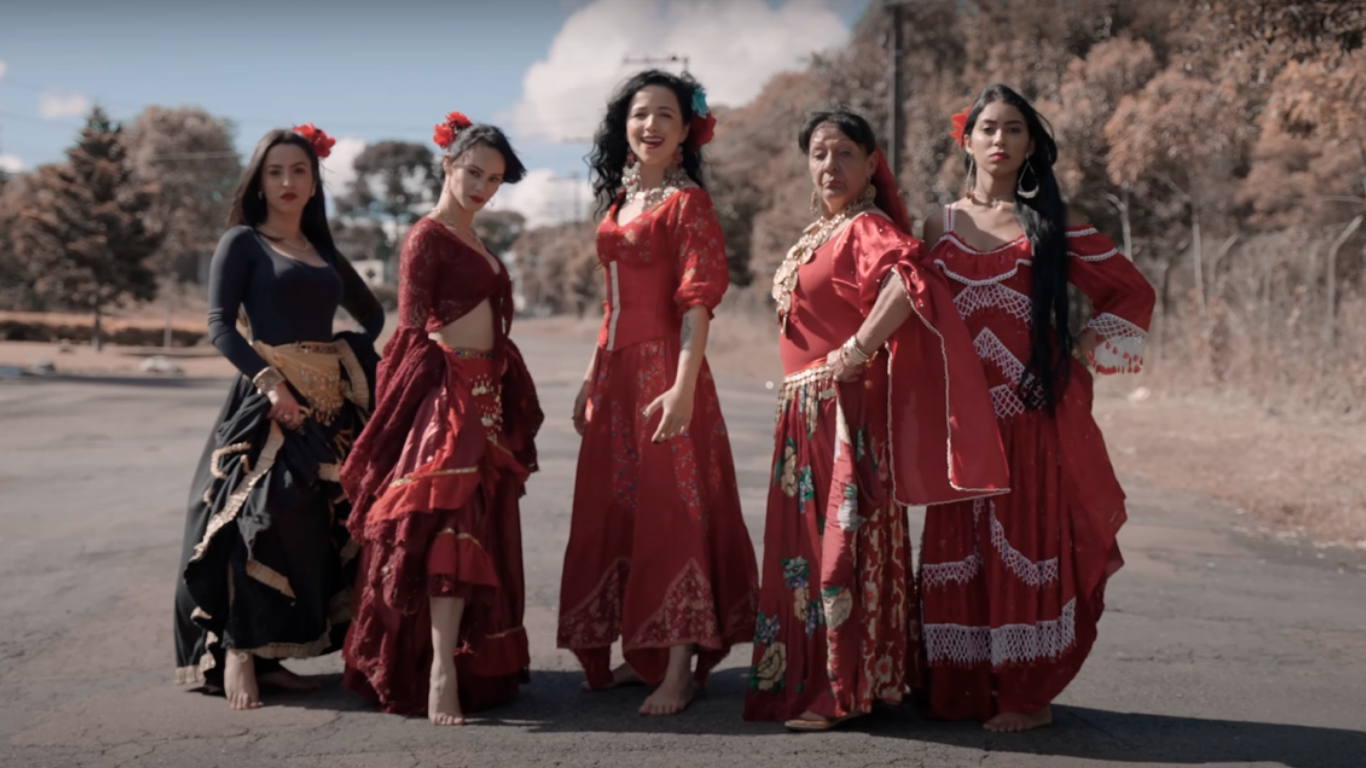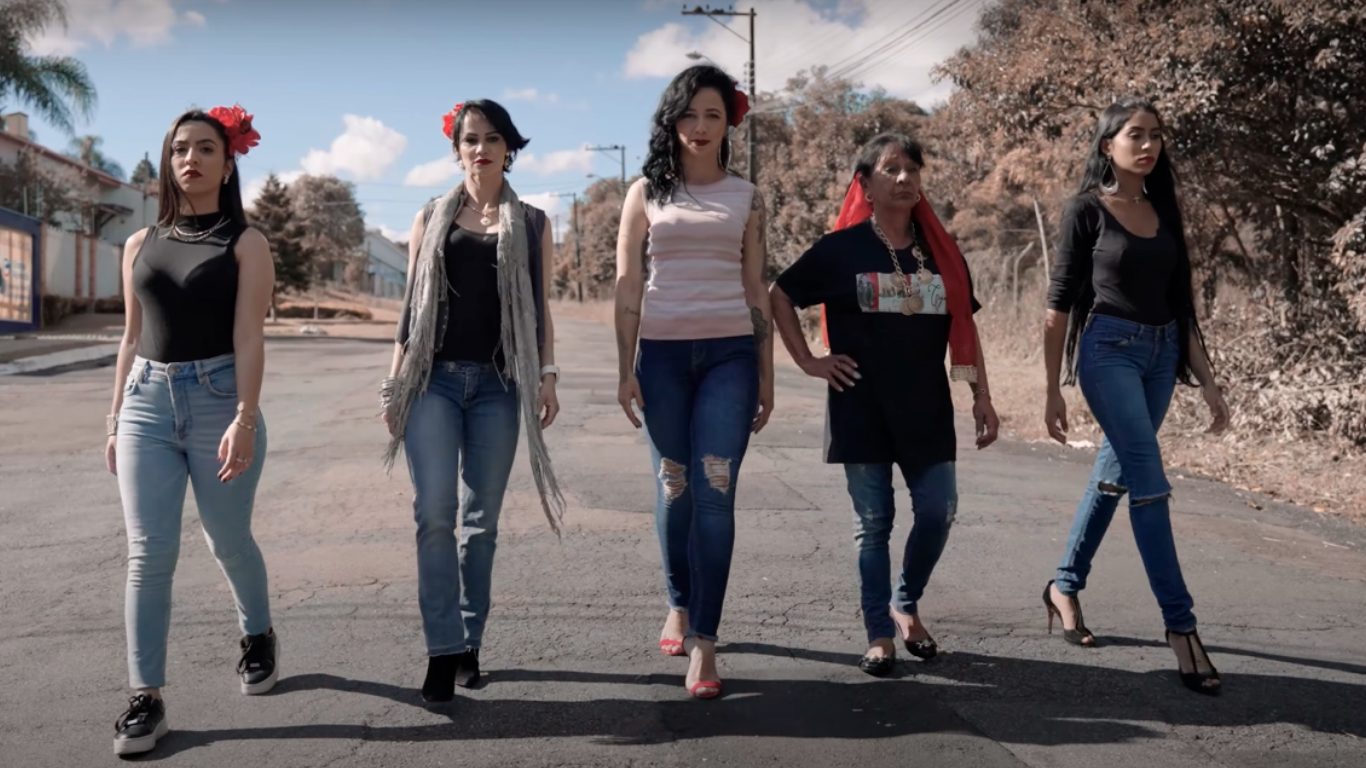Collective of gypsy women releases song against gender violence
The song “A voz de uma mulher”, recently released by the collective, draws attention to the plight of gypsy women and announces: “we will no longer be silent.”


Credit: Disclosure
By: Renato Silva – Lupa do Bem / Favela em Pauta
The Collective of Gypsy Women in Brazil is, in itself, a remarkable fact, given the lack of specific spaces for Gypsy women in society. For this reason, Hayanne Iovanovitchi, a law student, founded the collective.
“Gypsy feminism, in Brazil, has very few people who comment. Gypsy women don’t even know what feminism is. So, I thought: ‘I need to take these themes, I need them to know their history, to know their rights’, and we came up with the idea of the Collective of Gypsy Women in Brazil – COMCIB”, she reports.

In an article published in the Institute for Communication and Scientific and Technological Information in Health (ICICT), Graça Portela draws attention to the agendas and demands of the Roma population in the country, from its origins, to the diversity of social organization and even to the precarious population statistics on the gypsy peoples.
The agendas of gypsy people in Brazil
“There are in Brazil (data from 2013) about 500 thousand Gypsy people, divided into three major ethnic groups. We have the Kalon (the majority in the country), the Rom and the Sinti, who are still subdivided into several groups and subgroups. The difficulty in having a real idea of the number of gypsies living in the country is that not all of them are nomads”, says Graça in her article.
In addition to outdated statistics, Roma people also face difficulties in accessing basic rights according to their cultural needs, in addition to prejudice on the streets.
“With regard to the elaboration of public policies for Gypsy women in Brazil, it is scarce, nobody looks. Now, for Gypsy women it’s even worse. From this sexist custom, to go to the gynecologist, if it’s a man, we don’t go in. And then, how are you going to say in the SUS, ‘if it’s a man, I won’t go’? So you’re a gypsy, you don’t have a document, you don’t have a zip code and then, how do you do it?”, he asks.
“Woman’s Voice” and Hope
The song released by the collective has a clip produced and made possible by many hands. The production brings different generations of Roma women, dressed according to the cultures of different Roma subgroups, and a variety of inspiring words for a population of Roma women who have come to know the work of the collective.
“Where is her place? Wherever she wants” is what the song says and also the founder of COMCIB, Hayanne Iovanovitchi, daughter of a traditional gypsy family in Paraná, who presents herself as a young gypsy woman and deconstructed with regard to women’s rights in today’s world.
“I was raised by my grandfather and, by an irony of fate, a gypsy in a super sexist ethnic group. So, him doing all this work for so many years, I went to law school and I was thinking ‘I’m not a gypsy who follows customs to the letter, I’m all deconstructed, I have another idea for my life, another idea of future’. I entered college with this idea: I want to make an association so I can talk about myself,” he says.
The founder of the collective continues. “Because I already come from a super sexist culture, where the origin followed the man. The woman is always seen behind the man, she is never the protagonist of his story. That cannot be possible.”


In the clip, the collective brings generations of women dressed according to gypsy culture. At the last moment, however, they say goodbye dressed in jeans and T-shirts, reaffirming that a woman’s place is “wherever she wants”.
The founder of the collective and responsible for the release of the song gives a definition of the “ray of hope” also mentioned in the song.
“The Ray of Hope is the gypsy woman to be seen as a human being, as the holder of her rights, the protagonist of her story and being able to follow her life according to what she thinks is right, not what they tell her to do” , concludes.


